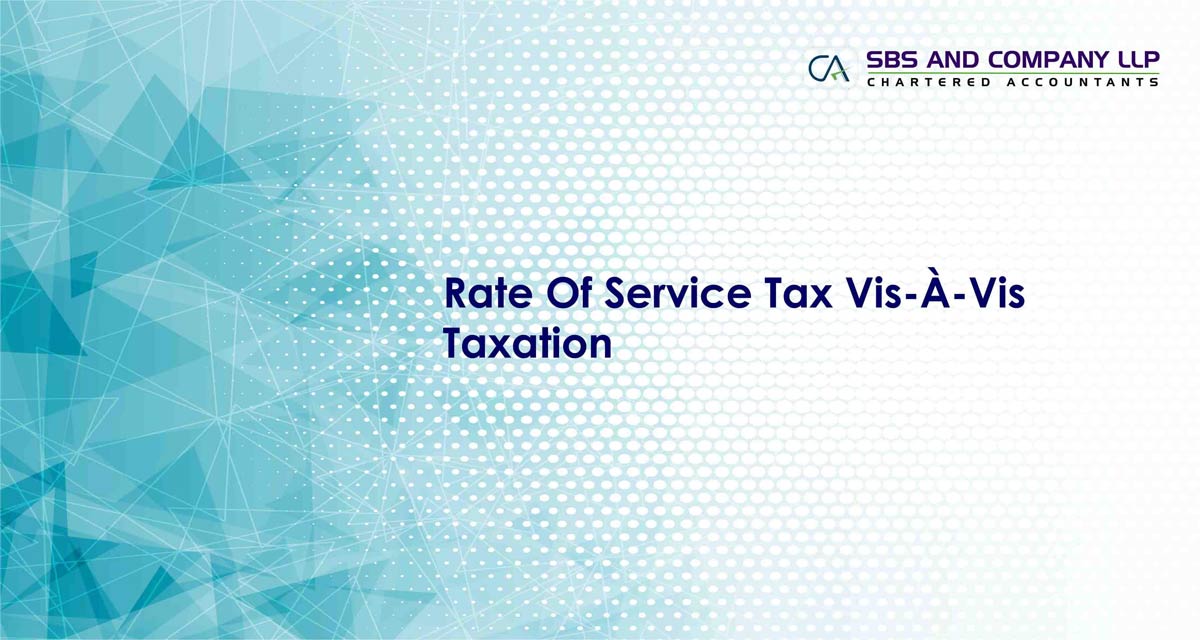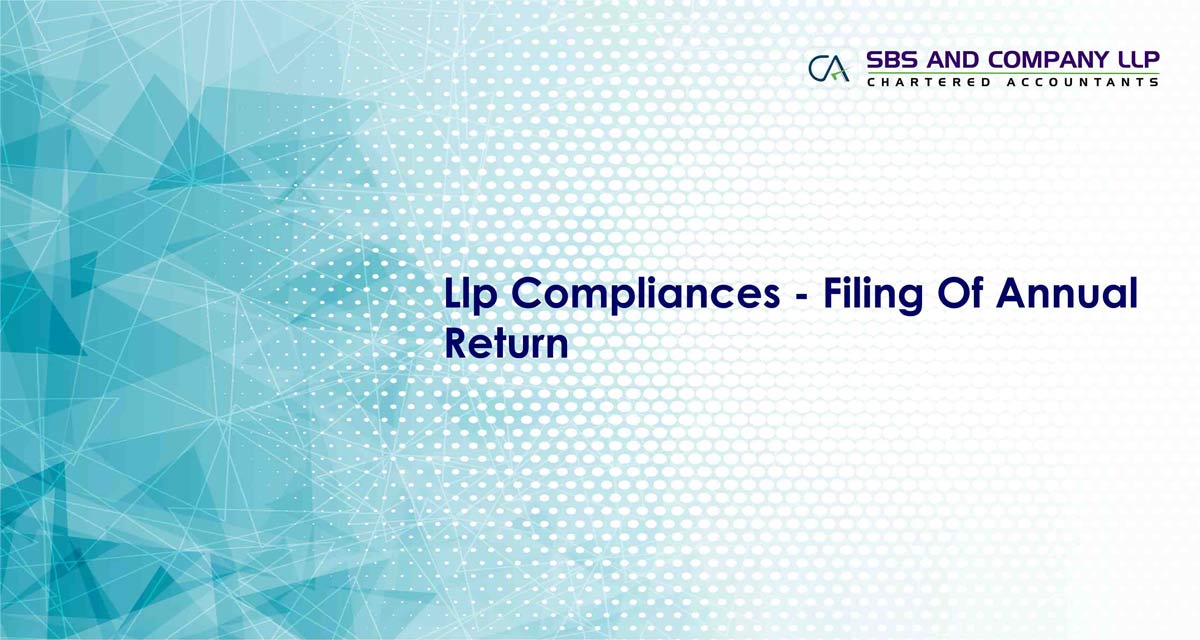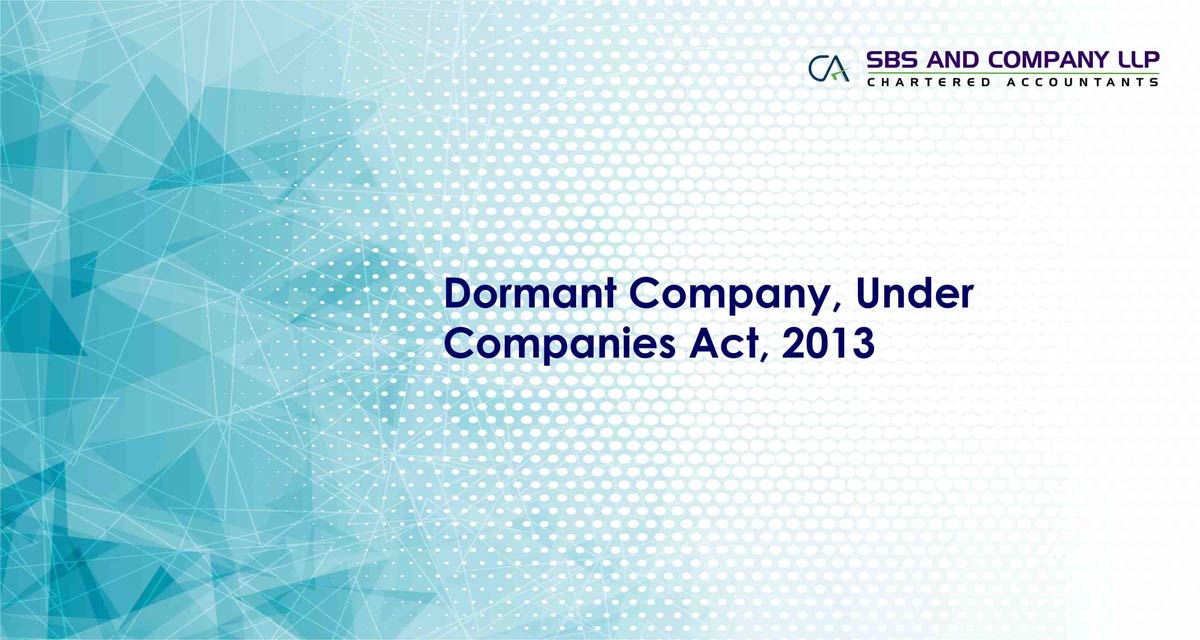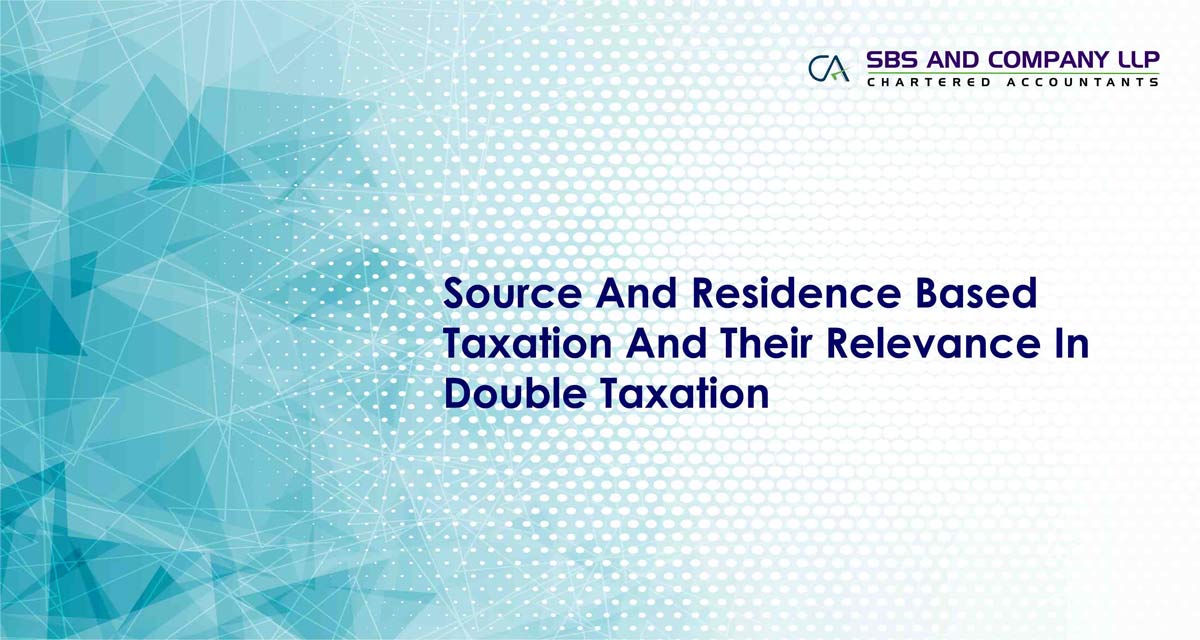The rate of service tax has been increased from 12.36% to 14%/16% from a date to be notified. The above change in the rate of service tax has been introduced in the Finance Bill, 2015. In light of the proposed new rate of service tax, we wish to analyse certain issues in this article in the form of Frequently Asked Questions.
FAQ 1: Is the new rate of service tax effective from 01 .03.2015/01.04.2015? Response:
No, the new rate of service tax shall come into effect from a date to be notified post enactment of Finance Bill, 2015. Hence, the current rate of service tax shall continue to be applicable till such date of notification.
FAQ 2: If the new rate of service tax has been collected from the customers, what are the recourses available to the service pro vider?
Response:
Any amount which is collected from the service receiver representing such amount as service tax shall be deposited to the credit of Central Government in terms of Section 73A of the Finance Act, 1994. Hence, even though the rate of service tax is 12.36% but the service provider in absence of adequate knowledge has collected 14%, the excess service tax is required to be paid to the credit of Central Government.
FAQ 3: We are engaged in provision of certain services. We have rendered the services before the new rate of service tax has been made effective. Now, we are contemplating to raise an invoice for the services provided after change in rate of tax? What rate of service tax has to be charged, 12.36% or 14%?
Response:
In the said question, it is clear that services were provided before change in rate of tax, however the invoice for the same has been issued post change in rate of tax. In such a case, the point of taxation shall be the date of invoice. However, if the payment has been received prior to such date of invoice, the point of taxation shall shift to the date of payment instead of date of invoice. Please refer Rule 4 of Point of Taxation Rules, 2011.
Example: Let us assume, the new rate of service tax is made effective from 15.05.15, and the services were provided in April, 2015. The invoice is contemplated to be raised in May, 2015. In such a scenario, the invoice has to be raised with new rate of service tax that is 14% and not 12.36%.
Further, assuming payment has been received in June, 2015, the due date for payment of service tax shall be 6th June, 2015, since the point of taxation shall be the date of invoice or the date of payment whichever is earlier.
FAQ 4: We are engaged in provision of certain services. We have rendered the services before the new rate of service tax has been made effective and an invoice to such an extent has been raised. However, the payment for the said service has been received post change in rate of tax. Whether any excess service tax (14%-12.36%) has to be collected from the service receiver?
Response:
Since the services were provided and an invoice to such extent has been raised before change in rate of tax, the point of taxation as per Rule 4 of the Point of Taxation Rules, 2011 shall be the date of invoice. Hence the service provider is not obliged to collect any further service tax from the service receiver.
FAQ 5: We are engaged in provision of certain services. We have rendered the services before the new rate of service tax has been made effective and payment to such an extent has been received. However, inv
Responoice was raised after the change in rate of tax. Whether any excess service tax (14%-12.36%) has to be collected from the service receiver?
Response:
Since the services were provided and payment has been received before change in rate of tax, the point of taxation as per Rule 4 of the Point of Taxation Rules, 2011 shall be the date of payment. Hence the service provider is not obliged to collect any further service tax from the service receiver.
FAQ 6: We are engaged in provision of certain services. We have rendered the services after the new rate of service tax has been made effective. However, the invoice has been raised before the change in rate of tax and payment to such an extent has also been received prior to change in rate of tax. Our Head of Finance is in view that since service is provided after change in rate of tax, the service is taxable at new rate irrespective of the fact that the invoice and payment has been received prior to change of rate of tax. Whether the new rate or old rate shall be applicable?
Response:
Since the invoice and date of payment falls before the change in rate of tax, the old rate of service tax shall be applicable. As per Rule 4 of Point of Taxation Rules, 2011, the point of taxation in such a case, shall be the date of invoice or date of payment whichever is earlier and in the instant case, both of the events have taken place before the change in rate of tax. Hence, the old rate of service tax shall be applicable despite the fact the service is being provided in the new tax rate regime.
FAQ 7: We are engaged in provision of certain services. We have rendered the services after the new rate of service tax has been made effective and the payment for the said service has also been received post change in rate of tax. However, an invoice has been issued before the change in rate of tax and service tax has been shown as 12.36% in such invoice. Whether any excess service tax (14%-12.36%) has to be collected from the service receiver?
Response:
Since the date of payment has fallen post change in rate of tax, the point of taxation shall be the date of payment as per Rule 4 of Point of Taxation Rules, 2011 and accordingly the balance service tax that is (=14% - 12.36%) has to be collected by raising a supplementary invoice on the service receiver.
FAQ 8: We are engaged in provision of certain services. We have rendered the services after the new rate of service tax has been made effective and the invoice to such an extent has also been raised post change in rate of tax. However, the payment has been received before the change in rate of tax. In such an instance, whether any service tax (14%-12.36%) has to be refunded to the service receiver?
Response:
Since the service has been provided and invoice has been raised post change in rate of tax, the point of taxation shall be the date of invoice and hence the service tax shall be the new rate of service tax and in such a scenario, there is no requirement to refund the service tax to the service receiver.
FAQ 9: Section 67A of the Finance Act, 1994 states that applicable rate of service tax is the rate which is in existence at the time of provision or agreeing for pro vision of service. However, the point of taxation rules describe the applicable rate which is not in line with Section 67A, for example in certain instances the rate of service tax is as on the date of payment irrespective of point of provision of service. In such a case, whether the rate as per Section 67A or point of taxation has to be adopted?
Response:
The issue mentioned herein quite ambiguous. Section 67A is very clear in terms of the rate of service tax existing at the time of provision of service or agreeing for provision of service. Further, the said section nowhere makes any reference to the point of taxation rules. However, there is an explanation to the said section which makes a reference to the rules for determining the rate of exchange which makes the intention of the legislation clear that for rate of tax whatever stipulated in Section 67A assumes supremacy. In absence of specific reference to point of taxation rules, one can argue that the rate of tax which is existing at the time of provision or agreeing for pro vision of service can be adopted irrespective of what is stated in point of taxation rules, in general and Rule 4 of said rules in specific.
However, on harmonious interpretation of the service tax law, it can be inferred that the phrase ‘provided or agreed to be provided’ appearing in Section 67A has to be read with the definition of ‘point of taxation’ vide Rule 2(e) of Point of Taxation Rules, 2011 which states that ‘means the point in time when a service shall be deemed to have been pro vided’. Hence, on a harmonious interpretation of the law, the point of taxation rules assumes significance and adoption of such rules shall be in accordance with the law.
We request the interested readers to go through the conflict between Section 67A and Point of Taxation Rules, 2011 in our forthcoming editions.
FAQ 10: We are in receipt of certain services wherein service tax on such service has to be paid by the service receiver under reverse/partial charge mechanism. We have received the services prior to change in rate of tax and payment to the vendor has been made post change in rate of tax. Now, for payment of service tax under reverse/partial charge obligation, which rate of tax has to be reckoned, whether 12.36% or 14%?
Response:
The point of taxation for the services falling under reverse/partial charge mechanism is the date of payment to the vendor as per Rule 7 of Point of Taxation Rules, 2011. Since in the instant case, the payment to the vendor has been made post change in rate of tax, the new rate of service tax has to be adopted for discharging the liability under reverse/partial charge mechanism.
FAQ 11: We are in receipt of certain services wherein service tax on such service has to be paid by the service receiver under reverse/partial charge mechanism. We have made payment to the vendor prior to change in rate of tax and received the services post change in rate of tax. Now, for payment of service tax under reverse/partial charge obligation, which rate of tax, has to be reckoned, whether 12.36% or 14%?
Response:
The point of taxation for the services falling under reverse/partial charge mechanism is the date of payment to the vendor as per Rule 7 of Point of Taxation Rules, 2011. Since in the instant case, the payment to the vendor has been made prior to change in rate of tax, the old rate of service tax has to be adopted for discharging the liability under reverse/partial charge mechanism despite of the fact that services were received post change in rate of tax.
FAQ 12: We are subsidiary company located in India and receive certain services from the holding company located outside India. The service tax on such services is required to be paid by us under the provisions of Section 68(2) of Finance Act, 1994 read with Service Tax Rules, 1994 and Notification No 30/2012-ST dated 20.06.2012. The challenge before us is, we have received a service prior to change in rate of tax and the payment has been made post change in rate of tax. Now, for payment of service tax under reverse/partial charge obligation, which rate of tax, has to be reckoned, whether 12.36% or 14%?
Response:
Since this is the case of a transaction between associate enterprises, the point of taxation for the same shall be guided by proviso to Rule 7 which states that the date of payment shall be the point of taxation. Since the payment has been made post change in rate of tax, the new rate of service tax has to be adopted for discharging obligation under reverse charge mechanism.
However, assuming that there is only a book adjustment in the books of accounts and the debit in the books of subsidiary company has been taken place before change in rate of tax, then service tax has to be paid at the old rate, since the point of taxation occurs at the time when debit is made in the accounts of the subsidiary company.
This article is contributed by Partners of SBS and Company LLP - Chartered Accountant Company. You can be reached at This email address is being protected from spambots. You need JavaScript enabled to view it.







